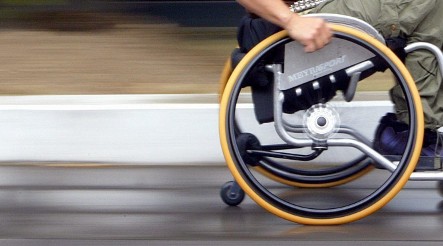The 44-year-old is known to Bielefeld police as the “serial drunk wheelchair driver,” police spokesman Martin Schulz told The Local.
“The patrol car saw him driving down the street and decided to see how he was doing that day, and that’s when the chase began,” he said
When the wheelchair driver saw police pull up next to him, he turned sharply and sped down the sidewalk. One officer in the patrol car got out and started to pursue him by foot. He managed to catch up to the wheelchair but stumbled when the man sped up to the wheelchair’s maximum speed, 25 kilometres per hour.
According to Schulz, the fall caused a few scrapes and bruises, as well as a few laughs among the officer’s colleagues.
The two officers in his pursuit finally caught up with the drunk at his home, where he went with them to the station for a blood alcohol test peacefully.
“It was obvious that the man had had too much to drink when police finally caught up to him at home,” Schulz said.
Results of the alcohol test are not back yet, but Schulz said the man admitted he had had a few to drink that day. After being tested, the man was allowed to go back home but ordered to stay off his wheelchair.
“Thank God it’s only a wheelchair he drives when he’s drunk,” Schulz said.




 Please whitelist us to continue reading.
Please whitelist us to continue reading.
Member comments